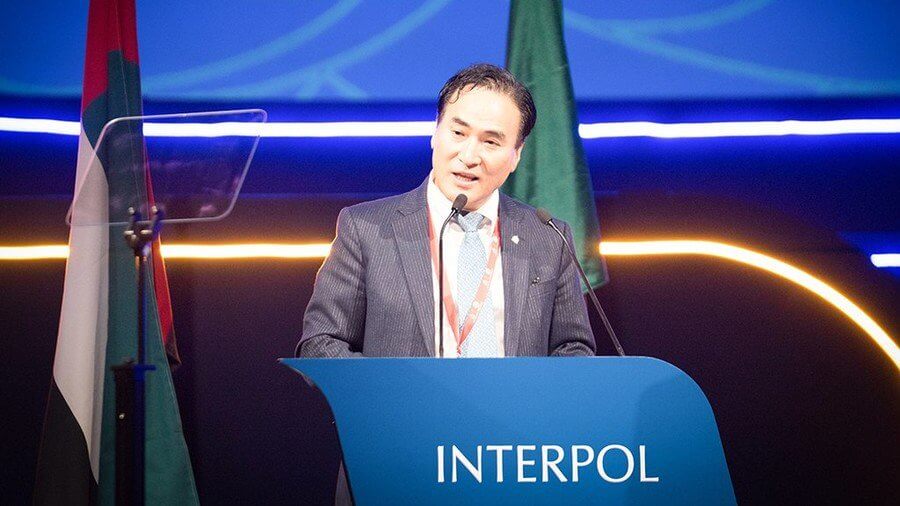South Korea’s Kim Jong-yang has been elected as Interpol’s next president, edging out a longtime veteran of Russia’s security services who was strongly opposed by the US, Britain and other European nations.
The White House and its European partners had lobbied against Alexander Prokopchuk’s attempts to be named the next president of the international police body, saying his election would lead to further Russian abuses of Interpol’s “red notice” system to go after political opponents.
Advertisement
Prokopchuk is a general in the Russian interior ministry and serves as an Interpol vice-president.
Interpol’s 94 member states chose Kim at a meeting of their annual congress in Dubai. He will serve until 2020, completing the four-year mandate of his predecessor Meng Hongwei who went missing in his native China in September. Beijing later said Meng resigned after being charged with accepting bribes.
Critics say that Prokopchuk oversaw a policy of systematically targeting critics and dissidents during his time in charge of the Russian office of Interpol. The Ukrainian interior minister, Arsen Avakov, tweeted from the conference room where the vote was held, saying: “The Russian candidate has been rejected. This battle is won!”
On Tuesday, the US secretary of state, Mike Pompeo, threw his weight behind Kim, who is the acting president of the global police body. “We encourage all nations and organisations that are part of Interpol and that respect the rule of law to choose a leader with integrity. We believe Mr Kim will be just that,” Pompeo told reporters.
Advertisement
Kim had been serving as Interpol’s acting president since Meng resigned and was a vice-president representing Asia. “Our world is now facing unprecedented changes which present huge challenges to public security and safety,” he said after he was elected. “To overcome them, we need a clear vision: we need to build a bridge to the future.”
The 57-year-old was previously the chief of police in South Korea’s most populous province, and is a high-profile proponent of the Korean government’s push to export its policing strategies, known as the “K-cop wave”.
Bill Browder, a British-American financier who has campaigned for western countries to implement sanctions against Russian officials accused of human rights abuses, said on Tuesday that Prokopchuk had been in charge of Russia’s Interpol bureau at a time when Moscow repeatedly tried to have red notice arrest warrants issued for him through the organisation. The central Interpol body rescinded the warrants, believing them to be politically motivated.
“There is probably no more inappropriate person than this person and there’s no more inappropriate country to have any kind of leadership position at Interpol than Russia,” he said at a press conference in London.
On Wednesday morning, Browder tweeted that “reason had prevailed”.
Advertisement
Marina Litvinenko, the widow of poisoned dissident Alexander Litvinenko, told the BBC’s Newsnight programme on Tuesday night that having a Russian as president of Interpol would lead to abuse of the red notice system. “Everybody who is asking for political asylum here in the UK now will not feel safe at all,” she said.
British officials made it clear that they were backing Yang, and expressed alarm at the prospect of Prokopchuk taking over. Lithuania’s parliament voted unanimously on Tuesday to consider leaving Interpol if Prokopchuk had won the vote.
Interpol’s president chairs its general assembly while day-to-day operations are handled by the organisation’s secretary general, Jürgen Stock.
_
The Guardian



